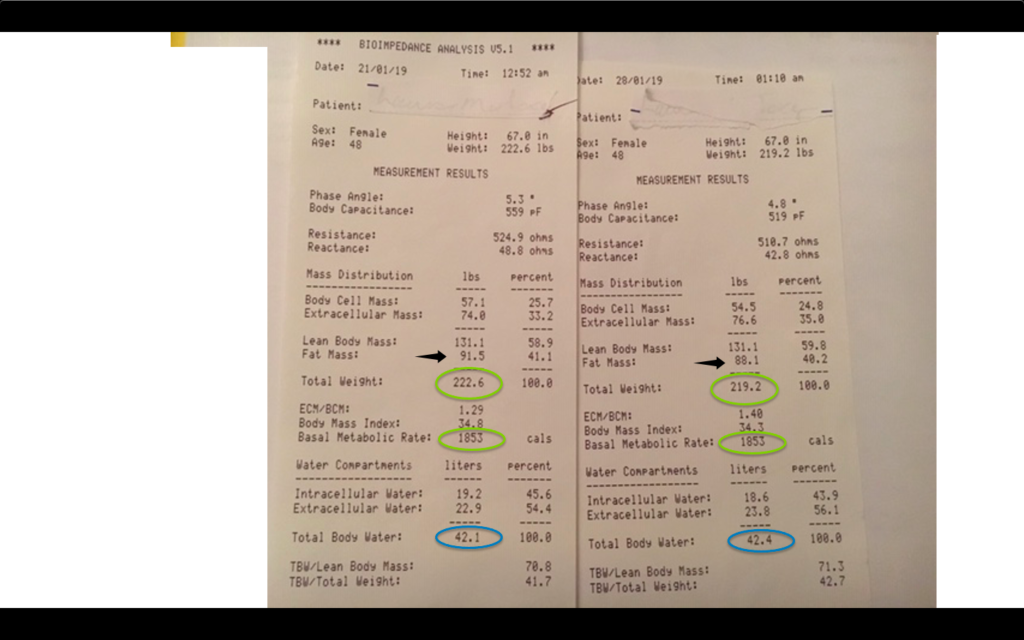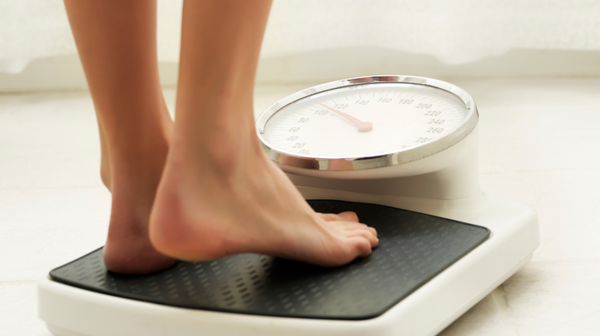According to data published by the CDC back in 2018, almost 50% of American adults try to lose weight every year. For many people trying to lose weight, the terms “weight loss” and “fat loss” are interchangeable.
When it comes to weight loss vs fat loss, the two are quite different. If you’ve been spending the duration of your diet watching the scales, you could be doing yourself more harm than good.
In this guide, I’ll take a look at everything you need to know about the differences between weight loss and fat loss so you can make healthy and sustainable progress towards a better you.
Weight Loss Vs Fat Loss: What’s the Difference?
The problem with focussing on weight loss is that your body weight is comprised of several things:
- Lean muscle
- Body fat
- Bone mass
- Organ tissue
- Water weight
This means that every time you step on the scales, and there’s a fluctuation in your weight, it could be any of these things. More often than not, those day-to-day changes in your weight are caused by water weight.
There are plenty of crash diets out there promising to be the holy grail of weight loss. But many of them fail to mention that you’ll be losing weight from areas where you need it, such as muscle and organ tissue.
I have tracked this quite closely on myself, 9 years ago, when I was first researching intermittent fasting to see if the claims were accurate. Namely that it is possible to lose a significant amount of weight on scale while at the same time keeping muscle so metabolism does not slow down despite the big loss on the scale.
I found this to be true which by definition means that the approach I was using targeted Fat Loss not just weight loss.
In the pic below you will see an example of this from the BioImpedance Assessment I did ona client of mine which shows the breakdown of where the loss on the scale is coming from.

You can see in one week she lost 3.4 lbs on the scale but where did this loss come from? Fat, Lean muscle &/or water?
As you can see if you look at the Fat Loss you can see that she lost 3.4 lbs of fat. Her lean body mass stayed the same which means her BMR (Basal metabolic rate) did not decrease.
This is the definition of healthy weight loss targeting FAT.
If you’re looking to get healthier and shed a few pounds of excess weight, then you need to focus on fat loss. This is healthier and this is also what will contribute more to a change in your body shape. Also focusing on fat loss will make it sustainable weight loss long term because your metabolism has not slowed down.
To do this yourself, the first thing you need to do is not just rely on the scale to determine your results. Let’s take a look at why fat loss is more important than weight loss.
Why You Should Focus on Fat Loss
Having a healthy weight in mind is important, but one of the best tips for fat loss is to track your body measurements using a tape measure and replace the scale with a mirror. A scale can tell you how much weight you’re losing, but it can’t tell you where that weight is coming from.
Measuring your waist, hips and chest will give you a much better idea of if you are losing fat by seeing the inches decrease over time.
Having too much fat in proportion to lean muscle mass is the main contributing factor to obesity. High body fat can lead to several other health problems including:
- High blood pressure
- High cholesterol
- Diabetes
- Heart disease
- Fatty liver diseases
- Strokes
- Sleep apnea
- Mood disorders (depression and anxiety)
By focusing on fat loss as opposed to just weight loss on the scale, you’ll still be working towards a healthier body and a better physique, but you’ll be doing so in a way that benefits your overall health.
Protein over Carbohydrates
When you’re trying to lose weight, it’s important to focus on having adequate protein in your diet. Protein helps to build and maintain muscle mass which is especially important when you’re dieting. Protein-rich foods can also help to reduce your appetite and therefore reduce your overall calorie intake.
Carbohydrates are a tricky one. While they are needed for the body to produce energy, it’s important to understand what happens if you don’t use them correctly.
Your body converts carbohydrates into glucose, which is used for energy throughout the body. Glucose is stored as glycogen in the muscles ready for use in physical exercises. However, there is only room for so much.
Excess glycogen is converted into fat, and your body won’t attempt to use this energy source until the glycogen stores in your muscles are depleted.
This means that it’s important to time your carbohydrate intake around exercise. This will help ensure that the body will use them for energy and not store them as fat.
Why Muscle Is Important
Maintaining muscle when you’re trying to lose fat is crucial. The more lean muscle you have, the easier it is for the body to burn fat.
As well as eating a high-protein diet, it is recommended that people looking to lose body fat should regularly participate in resistance, or strength training.
Strength training has been found to have better results for fat loss than aerobic exercise. This is because the more muscle you have, the more calories your body burns while you are resting. This helps to preserve your fat-free mass.
Keeping your muscle while losing weight also means your metabolism won’t slow down meaning it will keep burning the same amount of calories making it easier for you to maintain your weight loss long term.
Sleep and Stress
Most people might think that diet and exercise are the crucial components of weight loss, but reducing stress and getting adequate sleep are just as important.
Stress elevates levels of the stress hormone cortisol. High cortisol levels can increase our cravings for food, especially sweet and fatty foods.
A lack of sleep can contribute to elevated cortisol levels too, but sleep is also responsible for balancing two chemicals: ghrelin and leptin. Ghrelin tells us when to eat, and leptin tells us when to stop eating. When we are sleep-deprived our bodies produce more ghrelin and less leptin.
I have seen this first hand with many clients when we see their weight loss slow down and the only thing that has changed in that week is a few nights of poor sleep or a more stressful week than typical.
Managing stress and making sure you get enough sleep are essential aspects of a holistic diet that will help to control your appetite throughout the day.
The ChiroThin Weight Loss Program
Now you understand the differences between weight loss vs fat loss you have a good starting point for becoming a healthier version of yourself. The approach I use for weight loss based on different forms of intermittent fasting using your own food, can help you to lose weight while maintaining muscle mass and ensure that your body has all the nutrients it needs to stay healthy.
Many crash diets put unnecessary stress on the body by only focussing on losing weight as quickly as possible. My integrative program is designed to help your body manage the demands of losing weight while promoting overall health at the same time.
Are you ready to get started on the path to a healthier you? Click here to book a short 15 minute assessment call with me to learn more and so I can see if my approach and program is right for you.
